Thousands joined Hong Kong’s annual Pride Parade on Saturday, calling for the legal protection of LGBT+ individuals against discrimination.
According to organisers, over 12,000 people clad in elaborate lilac outfits and rainbow ribbons marched from Causeway Bay to Central, marking a 2,000 person increase from the year before. The police put the figure at around 4,300.
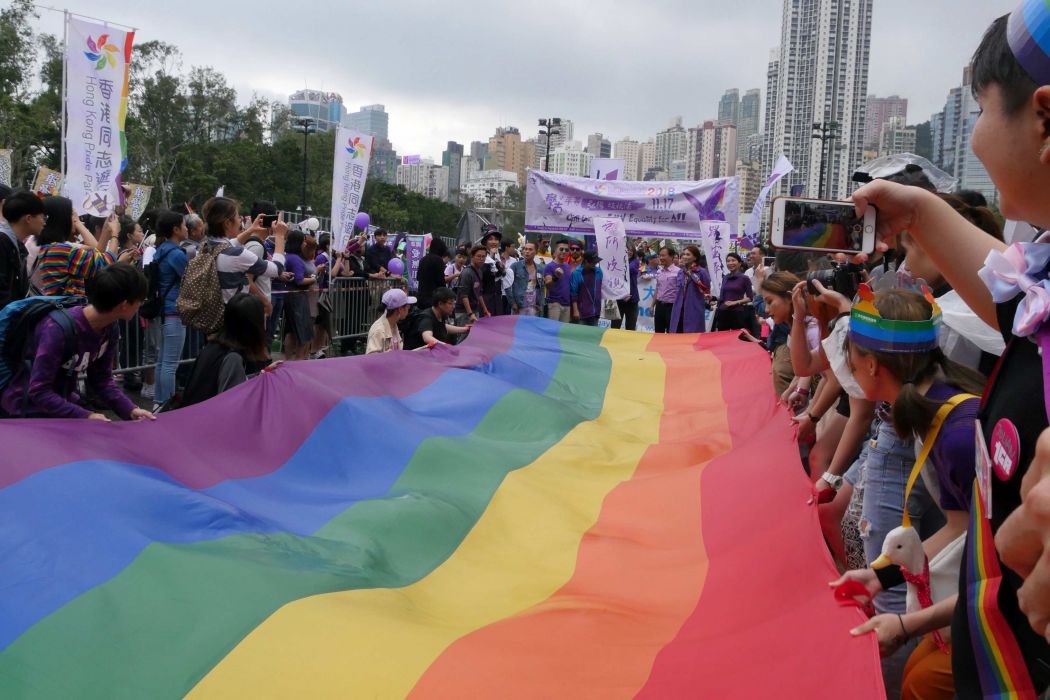
The dress code this year was “proud purple.” Organisers said that purple used to be a rare and difficult-to-obtain colour reserved for the ruling classes, but it is now accessible to all. They added that they hope equality will similarly be available to everyone.
‘Second-class citizens’
Hong Kong currently does not have anti-discrimination legislation covering sexual orientation. A key demand this year has been to enshrine equality into the law through the introduction of legal protections for LGBT+ people.
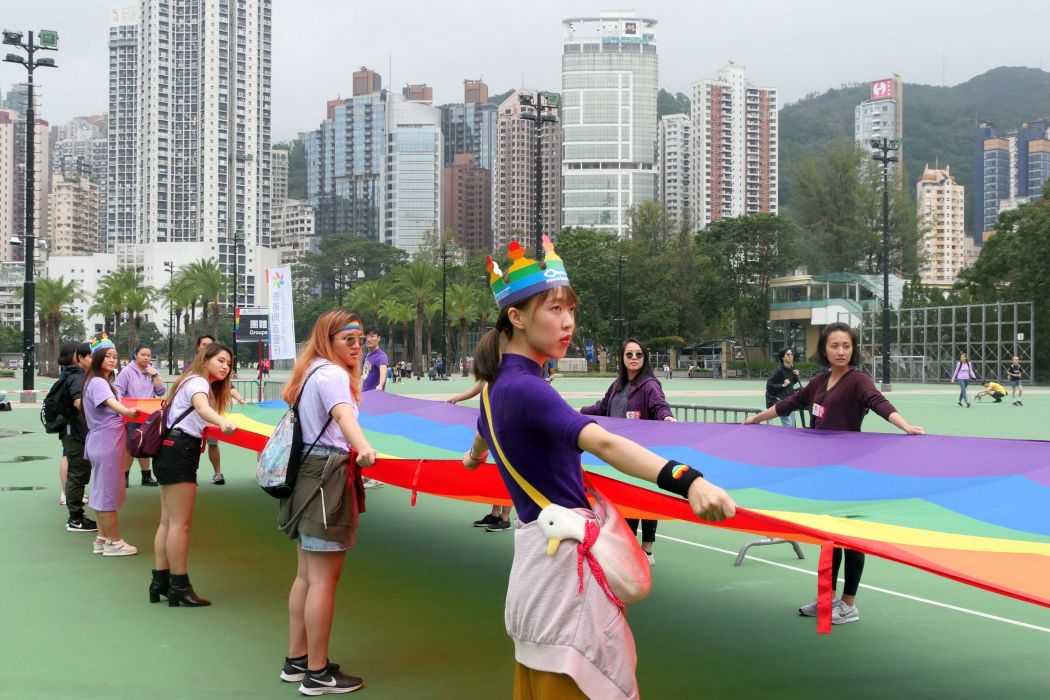
Cynthia Cheung, deputy spokesperson of Pride, said that it was the government’s responsibility to provide equal legal protection for the LGBT+ community. “We hope that more can be done to ensure everyone’s fundamental human rights – everyone is born equal,” she told HKFP, adding: “Why is the government treating us like second-class citizens?”
The event also focused on introducing more gender-neutral facilities, such as public bathrooms, to create an inclusive environment for non-binary and transgender people.
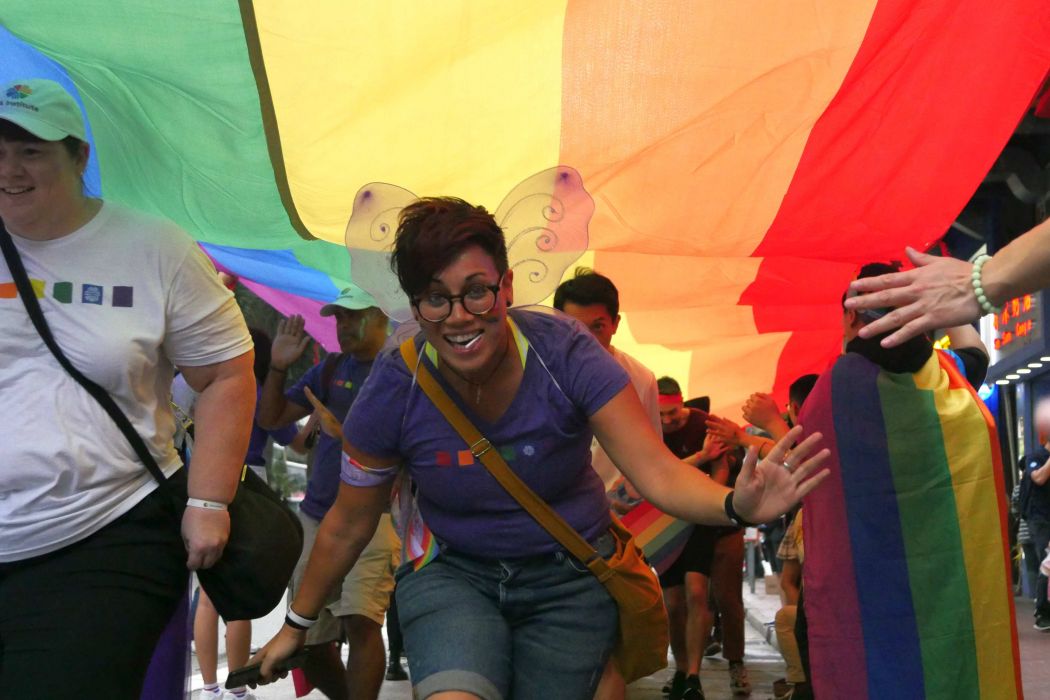
The parade was attended by Chairman of the Equal Opportunities Commission Alfred Chan, and led by prominent political figures including lawmaker Claudia Mo and activist “Long hair” Leung Kwok-hung, who headed the procession with a large rainbow flag.
Public consensus
Ray Chan, the first openly gay lawmaker in the city, told HKFP that the government has been dragging its heels on LGBT+ legal protection: “The government should deliver a public consultation on anti-discrimination legislation as soon as possible. Based on a survey from Hong Kong University, two-thirds of Hong Kong people support this legislation, so the government cannot use public consensus as an excuse to stop this measure,” he said.
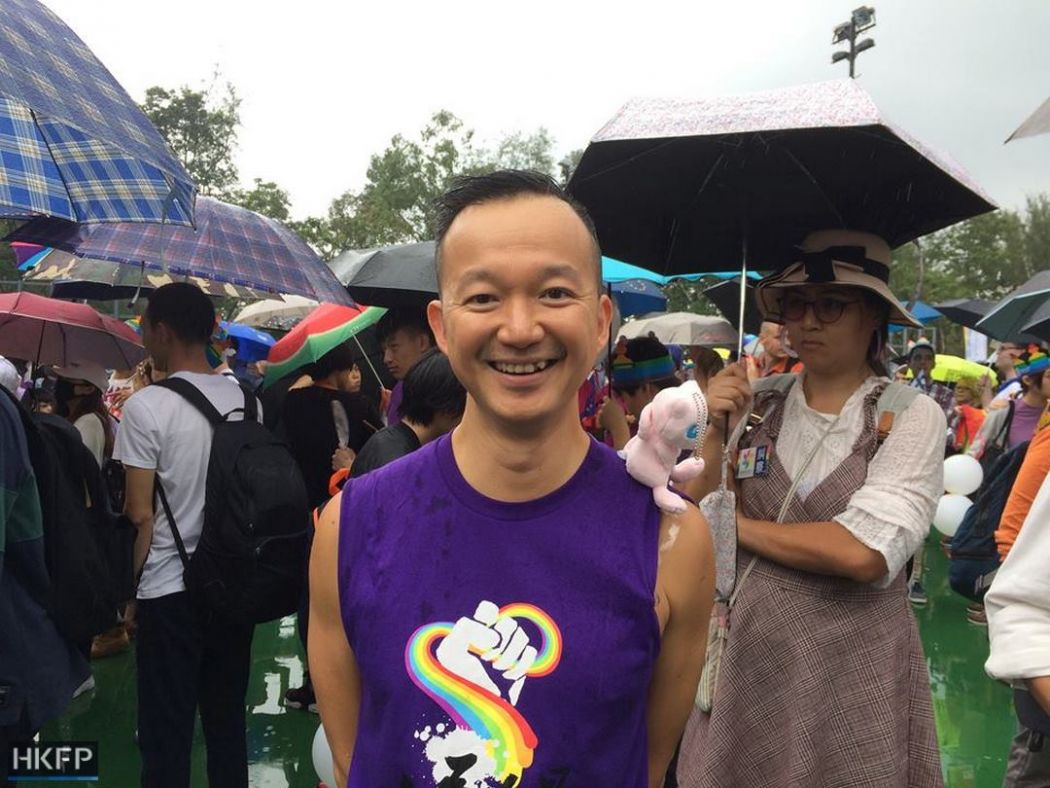
The march attracted overseas participants, including Taiwanese queer film streaming service GagaOOLala. It comes as the island – officially known as the Republic of China – prepares to vote on five marriage equality-themed referendums.
Also attending was the first openly gay prince in the world, Manvendra Singh Gohil of India, who urged Hong Kong to modernise its laws: “Since India and Hong Kong were both colonised by the British, they have similar laws that were enacted by the British,” he told HKFP. “Fortunately, we were able to change the law in India, which was based on Victorian moralities; similarly, Hong Kong should have the independence to make its own laws and not base their laws on a countries which has colonised them.”

“Hong Kong can learn from India and try to recognise the human rights of its citizens,” Gohil added.
A message of shame
NGO Planet Ally urged the government to re-introduce LGBT+ children’s literature into public libraries. In June, 10 children’s books featuring same-sex parenting were moved to the “closed stacks” of the city’s 70 libraries – a move that drew ire from LGBT+ rights groups.
“This is a really destructive move,” founder Bess Hepworth said. “You have to ask permission to get these books. For children that are questioning their sexuality, they’re not going to do that. They need to have access to these books. The message that this sends is that there’s something wrong with them.”
As crowds swell for today’s #Pride march, NGO @PlanetAllyApp are campaigning for the inclusion of #LGBTQI books in #HongKong public libraries following their removal of gay-themed children’s books in June: https://t.co/c5d3Rb9D1T pic.twitter.com/ikIzrln5Pq
— Jennifer Creery 紀寳瑩 (@creery_j) November 17, 2018
Hepworth added that it could have negative repercussions for LGBT+ youths: “We need different things that give us access to diversity. But if we ourselves are rainbow families, or have children that are LGBTIQ and they cannot see themselves in the libraries they go to, that is such a message of shame.”
Slow progress
Mac Tsang, a local LGBT+ advocate, told HKFP that they believe that in terms of dialogue around non-binary gender identities, Hong Kong is progressing at a slow rate: “Yes, we’re moving forward but it’s very slow. That’s why we need to come every year,” they said.
17-year-old gay transgender male student, Adam Ivan-Mitchell, moved to Hong Kong last year and has recently undergone a double mastectomy – a surgical procedure to remove both breasts: “Some people say you don’t need to have this done but in a way I said that I did, because it was one of my main defining attributes of femininity,” he told HKFP.
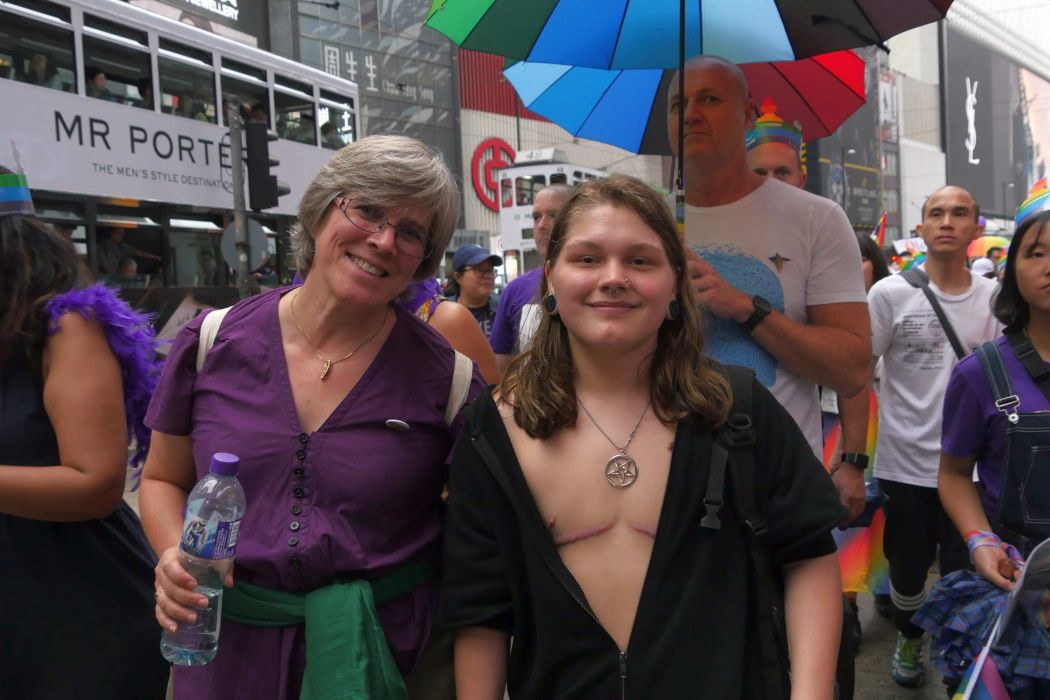
Ivan-Mitchell added that he believes Hong Kong is more progressive than other countries in Asia: “We lived in Korea beforehand. This march would be a lot harder to find, it’s a lot more conservative there, so we’re glad we found a place where we can do this,” he told HKFP.
As in previous years, Chief Executive Carrie Lam turned down an invitation from organisers to attend Pride 2018.
